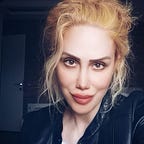Who Would You Be If You Put Your Social Identity Aside?
Have you ever thought of this before? If this question has made you think about something before, have you found the answer? First, let’s take a look at what constitutes our social identity.
social
According to Freud, identity is “a process and outcome of identification that begins with an individual’s assimilation or understanding of strangers or objects.”
According to Erikson, “by establishing a relationship between society and the individual, identity is also the individual at the core of his or her social culture.”
Considering that culture is the main determinant of identities, the rigidity and flexibility of culture creates the rigidity and flexibility of identity. Depending on the definition of culture, different belongings come to the fore and identity is shaped according to these elements. As it can be understood from here, it is the culture we live in that forms our social identity.
When you look at the world now, there are so many types of cultures that we don’t know how many.
Many people were born and raised in flexible and rigid cultures in different parts of the world. And so each person’s social identity develops differently from the other.
According to Walzer, “Solid cultural elements are passed down from generation to generation through social heritage. Communities acquire their identity in this way, as strict cultural elements predict a homogeneous community. rigid cultural elements are mostly negative as they trigger conservatism and exclusion. Solid identity does not give community members much say. However, collective identities consist of more than one process. Only marginalization of identity is a pathological type of identity based on hostility. The pathological identity opposes inter-communal exchange and alienates itself by constantly emphasizing the other.
Flexible cultural elements, on the other hand, leave more debatable areas to the society. Thus, a more tolerant definition of identity emerges. The characteristic of flexible culture is dynamic and open to change. Contrary to the unquestioning adoption of rigid cultural elements, flexible elements are adopted as a result of individual experiences in a lifelong rational learning process.
With the adaptation of the concept of culture to the political field, culture becomes dynamic,
a definition emerges that is inductive and transformative, flexible and called culture. With flexible culture, traditional culture homogeneity and stability are abandoned and a more tolerant approach is adopted. It is also called political culture or civic culture. The definition of the political field is organized in parallel with the culture that gives order and shape to the social field. Thus, culture is an independent entity that determines other fields taken as parameters. In short, another important feature of flexible culture is that it is dynamic and open to change.
The Transition Process from Covered Identities to Human Identity…
It will be easier for people who grow up in a flexible culture to transition from their social identity to their individual identity.
The Transition Process from Covered Identities to Human Identity is possible within a flexible culture. In other words, instead of the social identity that does not belong to him, the process of individual identity formed by his own choices begins. This individual identity creates a flexible mental foundation that further develops and transforms the person. Thus, there are societies of individual people who are constantly developing both mentally and consciously.
Who Would You Be If You Put Your Social Identity Aside? Of course, with your individual identity taking the stage, you become a new you. You both write and act out your individual story.
